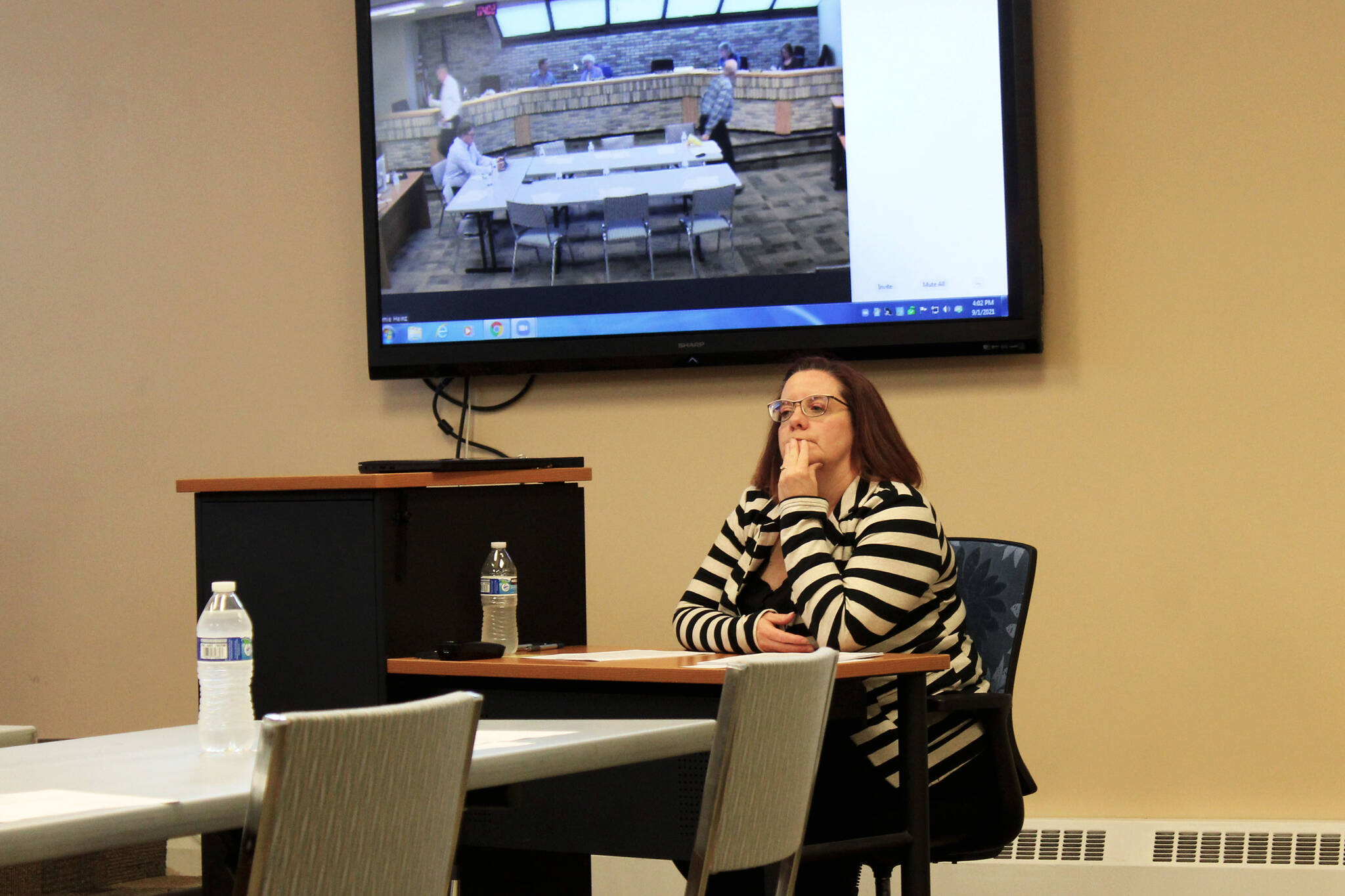The City of Kenai is rebuilding its election laws from the ground up to better align with borough and state practices.
The restructuring of the city’s election code was the subject of a work session the Kenai City Council held with the Kenai City Clerk’s office on Wednesday afternoon. The new code, if adopted, would be largely the same as what is already in place, but would codify current election practices and implement some new processes, Kenai City Clerk Jamie Heinz said during the work session.
The overhaul of the city’s election code, Heinz said, will also bring the city code in alignment with how the Kenai Peninsula Borough runs its elections, improves the city’s process for administering elections and provides clarity. That’s important, Heinz said in a memo, because the City of Kenai has entered into an agreement with the borough to commemorate the collaboration and will be using new voting equipment purchased by the borough that complies with the Americans with Disabilities Act. The city already collaborates with the borough to administer elections.
“It is in the best interest of the City to provide for procedures in its elections that are established locally, with local public process, and align with those of (the Kenai Peninsula Borough),” the legislation says.
If approved, the new code — Chapter 6 — would contain 11 sections that outline, respectively, general provisions, voter qualifications, filing for office, administration of elections, polling site procedures, absentee voting, ballot counting procedures, canvassing and certification of election results, election recount, contest of election and special elections.
The new code would also require candidates for city offices to comply with Alaska Public Offices Commission Campaign Disclosure laws, add clarifications for poll watchers and require a public notice announcing council vacancies. Candidates were already required to comply with APOC, but the new code would restate that process, Heinz said Thursday.
Like sweeping election legislation approved by the Kenai Peninsula Borough Assembly earlier this year, a significant portion of the new policies proposed would codify the city’s existing election processes.
Heinz described the process of repealing the city’s existing code and enacting new code as being given the opportunity to rebuild and rearrange the city’s election code from the ground up.
“That’s what a repeal and replace does — it completely takes everything away,” Heinz said. “You’re given a blank slate and you’re … putting it all in a different order.”
In addition to rearranging the city’s existing election laws, new code allowing people who vote absentee to “cure,” or correct mistakes on ballots, authorizing the clerk to determine candidate qualifications and reducing the amount of time that the city retains records that contain candidates’ personal information, such as their birth date and Social Security number, would also be included.
The ability for voters to cure their absentee ballot would undoubtedly be one of the biggest changes. Under the proposed code, the city clerk would be able to contact a voter who submitted their absentee ballot by mail, by fax or electronically to let them know that their ballot could be rejected as submitted. The clerk could then give them the opportunity to fix, or “cure,” whatever was wrong with their envelope or affidavit. Heinz said Wednesday that the process doesn’t apply to many voters, but that reframing the approach would send a positive message to voters.
“When I reviewed my last five years worth of elections, I would have been able to help six voters,” Heinz said. “So it’s not a huge burden to our time, but I can set the policy that we are looking for reasons to include a vote instead of exclude a vote, (which) is huge in the eyes of voters.”
The work session also provided a forum for council members to propose changes to the new code before it is officially introduced at a meeting. Council member Jim Glendening, for example, voiced concerns about nominating petitions. The rule, which is part of the City of Kenai’s existing code, says that voters can only sign as many nominating petitions as there are vacancies on the council.
Other amendments proposed during the work session included adding U.S. citizenship requirements for people attesting to the completion of absentee ballots and for people who help others vote absentee and adding more definitions for terms used in code.
The legislation, sponsored by Kenai Vice Mayor Bob Molloy and Heinz, was approved for introduction during the council’s July 7 meeting and had its first public hearing on Aug. 4. Both Heinz and Molloy will be leaving their roles with city in the next few months — Heinz will step down as city clerk and Molloy has not filed to run for reelection to the council.
The next municipal election is Oct. 5. The deadline to register to vote in that election is on Sept. 5 and absentee voting begins on Sept. 20. More information about Kenai elections can be found on the city’s website at kenai.city.
Reach reporter Ashlyn O’Hara at ashlyn.ohara@peninsulaclarion.com.

